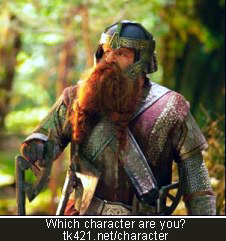ramblings
I am reading a book my parents gave me for my birthday and, sorry, I am quite unhappy with it. It is a german book and the words in it are so bombastic, high level and intellectual that I have to read every sentence twice just to get it’s meaning. I like clear, simple language which says what it has to say and then shuts up. This book is written by Ruediger Safranski and is about the great german poet Schiller. Here the biographer is trying to top the poet, but does not get it. Schiller is great because he is, still now since 1770 and something, simple, understandable, moving and exciting. Safranski isn’t and will therefore not come into the ring of great writers, however hard he tries.
I have come as far as a complicated interpretation of philiosophers of the late eighteenth century, 1750-1800 or so about. Why do I get so impatient reading this? Their ideas might be fascinating and great, I couldn´t tell. But, when they ramble on about the position of man in nature, the world and the universe, think about what they did not yet know. It was before the french revolution, Goethe wrote that the white colour was the purest one –no, let’s keep it short- he got this whole colour-prism thing wrong, it was 100 years before Darwin wrote the “origin of man”, it was still longer untill Freud wrote stupid things about the human psyche and a long, long time before brain scanning and gene research –and results-, so were does this put us now? Is the view of the human being as it was through the greek classik, the middleage through to the last century still relevant for others than historicans?
I feel like when keeping ourselves in the past and the old ideas we are not ready to look at and cope with the problems of today. Not only the science but the idea of science has changed tremendously in the last hundred years and will surely keep on changing dramatically in the future in ways we can’t imagine. Different to the old times when there were a few elected talking in latin about the world these changes touch now every single individual on the globe. Why for example should we nowadays study Marx’s “Das Kapital”? We know that his and Lenins ideas didn’t work. Is there anything more to say about it? It was tried out and didn´t succeed but cost thousands of people’s lives. Anyhow, the interactions in the world have gotten far to complicted for that simplicistic model.
On a much lower level we are discussing these problems at my school. How and what to teach our children. Should we still teach them facts? Or ways to access knowledge? But more about that later.






1 Comments:
Wow...when I started to study psychology I had to learn every theory made through the ages. But not only that. I had to learn who said what and who disproved the theory and how. Sometimes I felt that I was studying so irrelevant facts that it was driving me insane. I do not care what some person thought were the fundamentals of psychological behaviour when I know his theory has been proven wrong for centuries. I think we should always study present knowledge and have an overview over past misconceptions...so we do not have them again. Definately...instead of teaching facts...teach how to aquire knowledge in the first place...the rest is upt o each individual.
Post a Comment
<< Home